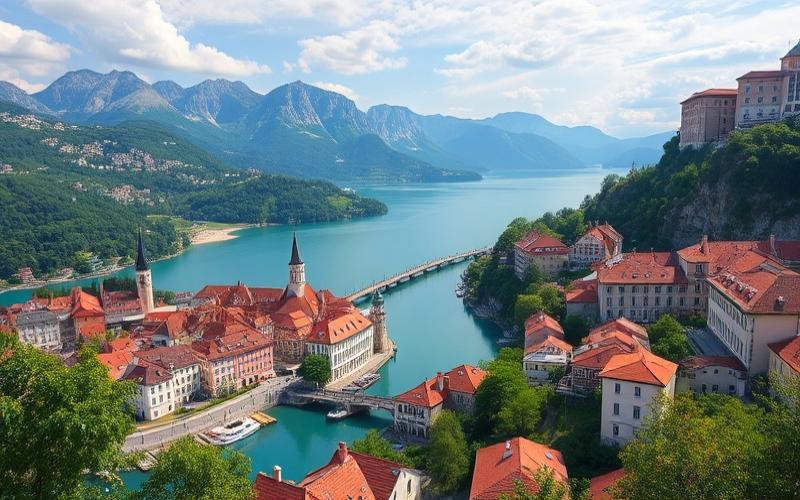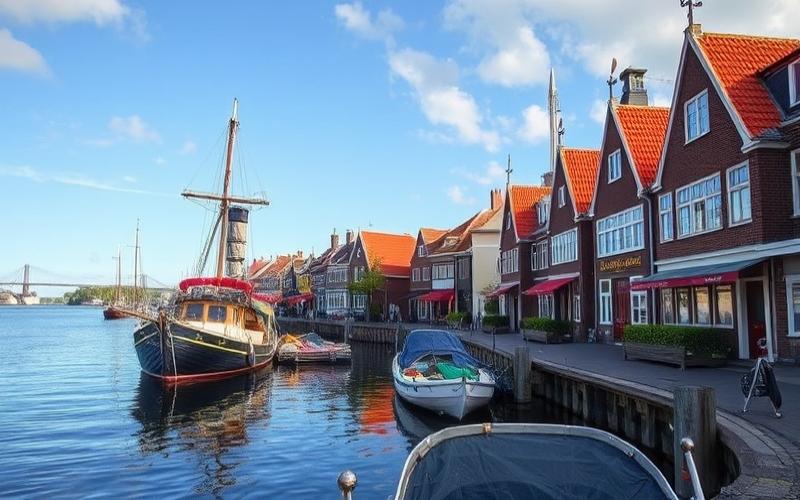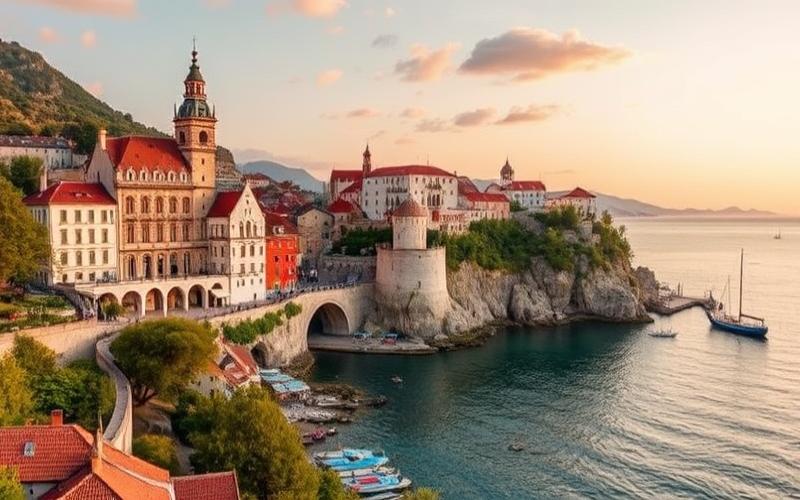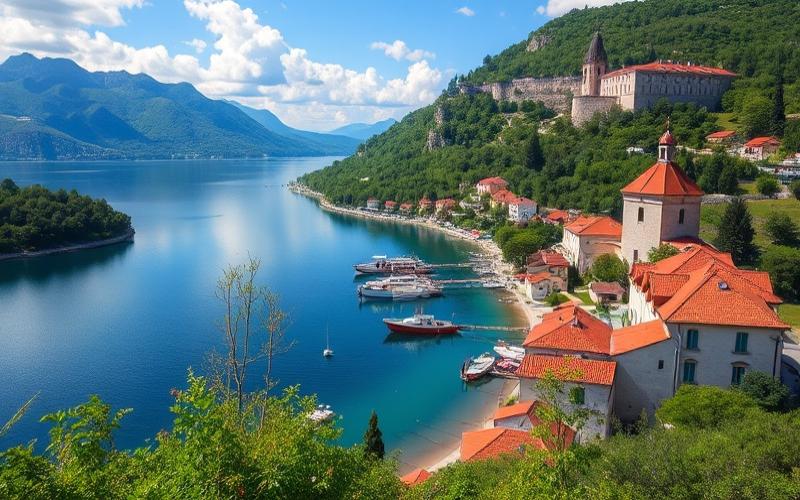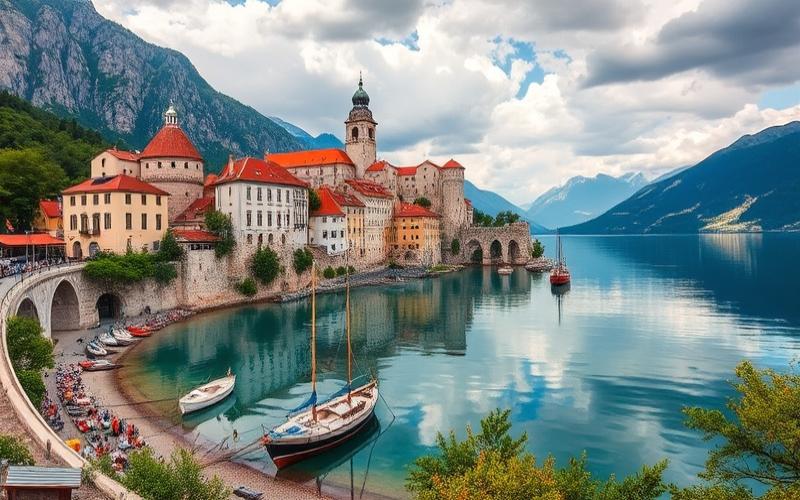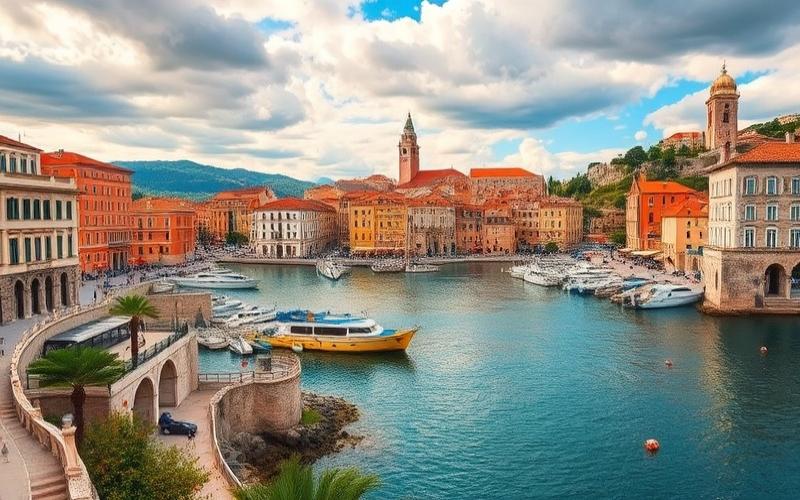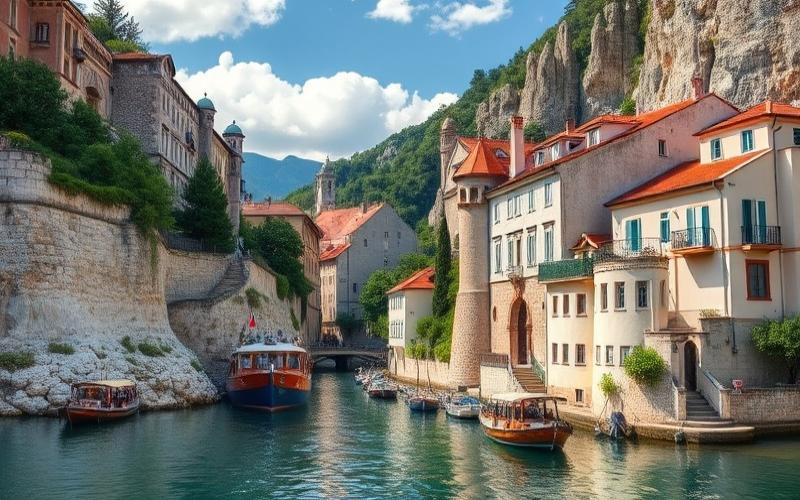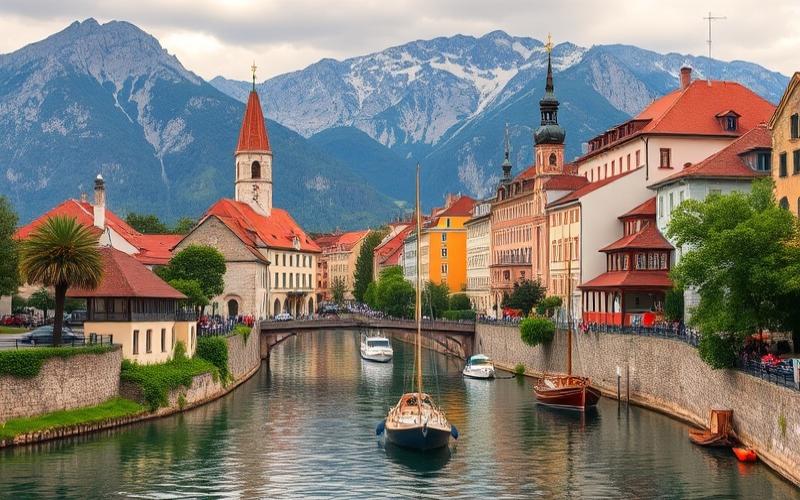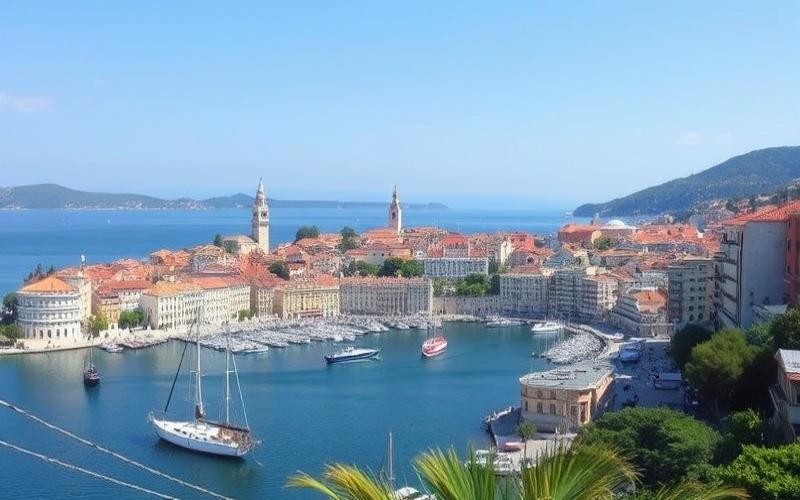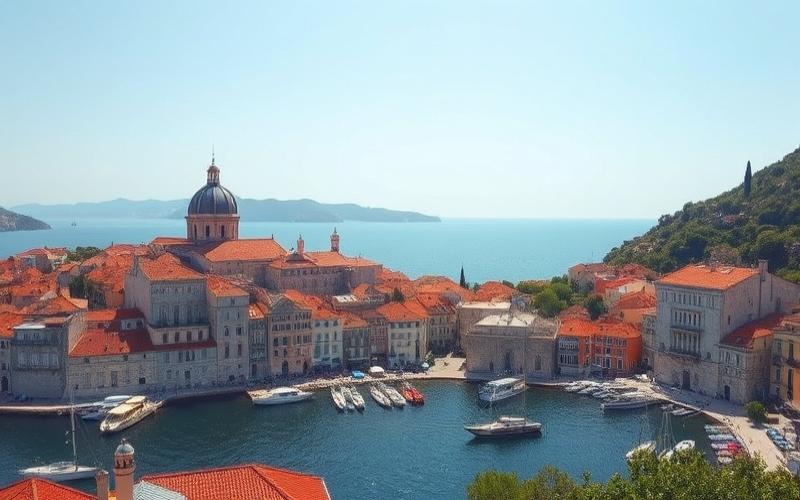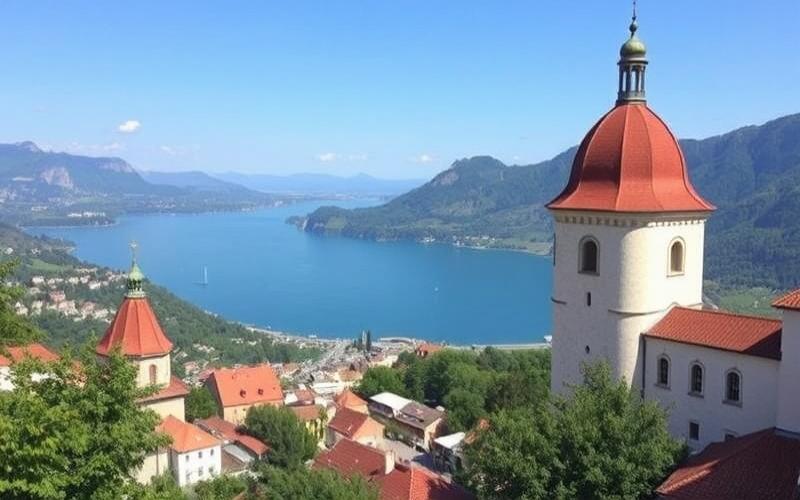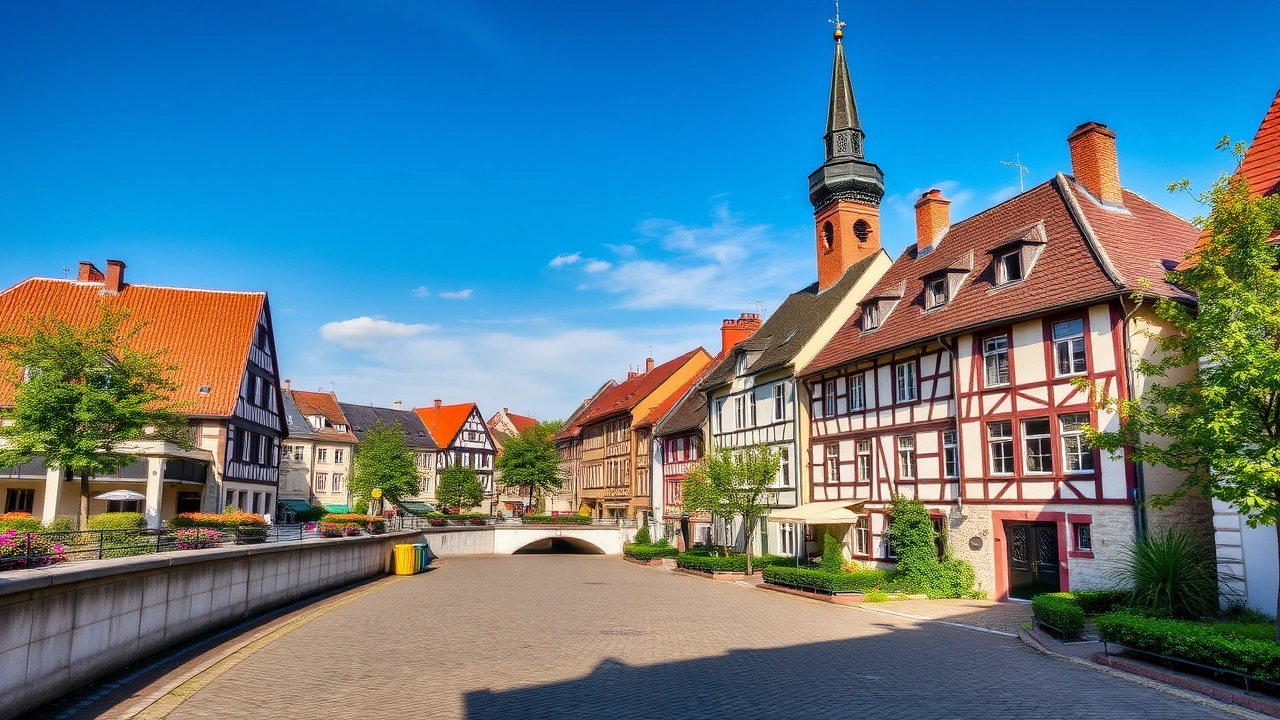
 Published on and written by Cyril Jarnias
Published on and written by Cyril Jarnias
The Croatian Real Estate Market and the Trap of Retouched Photos
In Croatia’s booming real estate market, potential buyers are seeking properties that combine southern charm with modern amenities. However, a concerning trend is emerging: the increasing use of retouched photos to enhance sometimes ordinary, even disappointing properties.
These carefully edited images, often unrecognizable compared to reality, can transform a modest house into a luxury villa with breathtaking Adriatic views, sowing doubt and distrust among buyers.
How to Avoid Disappointment?
Through this article, let’s delve into the intricacies of these marketing practices and discover how to prevent the Croatian dream from turning into disillusionment, decoding the tricks and traps behind overly perfect photos.
Good to Know:
Retouched photos can hide major flaws like moisture, cracks, or poor exposure. Always request unedited photos or arrange an on-site visit.
Avoiding Real Estate Scams in Croatia
Tips for Verifying the Authenticity of Real Estate Listings in Croatia
- Always request an in-person visit to confirm the property’s actual condition, avoid surprises, and verify if the property matches the published photos.
- Be wary of enhanced or retouched photos: spot images that are too perfect, unusual camera angles, or photos where flaws are hidden. It’s recommended to ask for additional photos, especially of details or less highlighted areas.
- Use certified real estate agents: prefer agencies or brokers registered in the official registry, capable of providing a license or proof of accreditation. A certified agent should be able to answer all questions about the property, handle administrative procedures, and represent you during negotiations.
- Look for reviews and testimonials from previous clients: check specialized platforms, forums, or social media to get feedback about the agency or seller. The reputation and history of the agent or agency are valuable indicators of reliability.
Common Scam Practices in Croatia’s Real Estate Sector
| Type of Scam | Description |
|---|---|
| Fake Listing | Nonexistent or already sold properties used to collect deposits. |
| Misleading Photos | Retouched images, angles hiding defects, or photos of another property. |
| Fake Intermediaries | People posing as agents without official certification. |
| Falsified Documents | Counterfeit or nonexistent property titles or building permits. |
| Pressure for Quick Deposit | Urgent payment requests without clear justification or legal guarantees. |
Legal Protection Tips When Purchasing Property
- Verify documents and property titles:
- Consult the land registry (cadastre) to ensure the seller is the legal owner.
- Examine the property’s history: mortgages, disputes, easements, or possible restrictions.
- Verify the existence and validity of building and use permits, especially for new or under-construction properties.
- Hire a real estate law specialist:
- The attorney checks all documents’ compliance, drafts or reviews the sales contract, and protects your interests throughout the transaction.
- Require original official documents:
- The official property title must be issued and registered with the land registry.
- Any modification must be notarized and registered.
- Never pay a deposit without guarantees:
- Make payments to an escrow account managed by a notary or certified agency.
Key Takeaway: Caution, thorough document verification, and using certified professionals are essential to avoid pitfalls and ensure the security of your real estate acquisition in Croatia.
Good to Know:
To avoid real estate scams in Croatia, start by verifying listing authenticity: request an in-person visit to confirm the property matches the photos. Photos can be retouched to hide flaws, so be cautious and don’t hesitate to use certified real estate agents for assistance. Look for reviews and testimonials from previous clients to assess the agent’s or agency’s reputation. It’s crucial to verify documents and property titles to avoid common scam practices, such as sales of properties not actually owned by the sellers. Ensure the legitimacy of the purchase process by consulting a real estate attorney for proper legal protection.
Verifying the Authenticity of Real Estate Listings
To verify the authenticity of a real estate listing in Croatia, several methods and tools exist to protect against scams and misleading information.
Essential Tips for Validating a Real Estate Listing:
- Request real or virtual tours
- Demand a physical property visit or, if not possible, a virtual tour (live video conference) where you can interact with the seller or agent.
- Refuse any proposal that only allows viewing through static photos.
- Verify the real estate agency
- Consult the official directory of licensed agents on the Croatian Chamber of Economy website (Hrvatska gospodarska komora).
- Verify that the agency has a physical office and legal existence.
- Search the agent’s name in this national directory to confirm their professional status.
- Check contact information consistency
- Compare provided contact details (address, phone, email) with those listed on the agency’s official website.
- Be wary of agencies without fixed addresses or official phone numbers.
- Consult reviews and testimonials
- Read comments from other potential buyers on Google Maps, specialized forums, or local social media.
- Prefer platforms with serious user verification.
- Carefully examine published photos
| Verification | Tools/Actions |
|---|---|
| Metadata | Analyze image file properties to detect actual date or origin. |
| Reverse Search | Use Google Images or TinEye to check if the photo appears elsewhere in different contexts. |
| Anti-Retouching Apps | Mobile apps now allow detection of certain types of digital modifications (example: Photo Forensics). |
Be particularly cautious of overly perfect photos that might hide major flaws.
Official Documents to Require Before Any Commitment:
- Request a recent cadastral extract (“izvadak iz zemljišnih knjiga”), containing:
- Land cadastral number
- Owner name(s)
- Absence/presence of mortgage
- Clear legal status
- Have these documents verified by an independent notary or local specialized attorney to ensure no disputes or potential falsification.
Using the Internet to Gather More Authentic Information:
- Participate in Facebook groups dedicated to real estate purchases in Croatia and forums like Expat.com where concrete experiences are shared directly between individuals.
Social media often provides quick alerts about questionable agencies through digital word-of-mouth.
Summary Checklist to Remember Before Any Transaction:
- Confirm real existence through visits
- Validate professional licenses
- Thoroughly examine all official cadastral documents
- Scrutinize independent reviews on multiple web/social platforms
- Analyze published images with specialized tools
Warning: Never transfer money without an official receipt issued by a licensed agent.
Document transparency is essential: each property has a unique cadastral number allowing public verification.
Good to Know:
To verify the authenticity of real estate listings in Croatia, it’s crucial to be wary of potentially retouched photos. To confirm the property’s real existence, request virtual or in-person tours and ensure the indicated real estate agency has verifiable contact information. Consulting reviews and testimonials from other potential buyers can also prove useful for assessing a listing’s reliability. Verifying official documents, such as the cadastre, is essential to avoid disputes or falsifications. Social media and online forums often provide authentic information from other users. Additionally, technologies like photo verification apps help detect image modifications, ensuring a more objective assessment of listing authenticity.
The Importance of Realistic Virtual Tours
Retouched real estate photos can create unrealistic expectations among potential buyers. When they physically visit the property, they often notice significant differences (actual condition, lighting, dimensions), leading to disappointment and loss of trust in the seller.
- Artificial enhancement of colors or brightness
- Concealment of defects or imperfections
- Misleading camera angles regarding room sizes
- Risk of dissatisfaction or disputes during actual visits
Realistic virtual tours offer a faithful and immersive representation of real estate properties. Through this technology, buyers can explore the entire property, observe the smallest details, and envision themselves more easily, limiting bad surprises during physical visits.
- Accurate visualization of space, furniture, and natural light
- Identification of defects or features invisible in standard photos
- 24/7 tour access without geographical constraints
- Reduction of unnecessary visits, as only genuinely interested buyers make trips
| Comparison | Retouched Photos | Realistic Virtual Tour |
|---|---|---|
| Fidelity to Reality | Low to Medium | High |
| Risk of Disappointment | High | Low |
| Immersion and Projection | Limited | Very Strong |
| Trust Relationship | Weakened | Strengthened |
Technologies Used for Precise and Immersive Virtual Tours:
- High-resolution 360° cameras
- 3D laser scanners for volume modeling
- 3D reconstruction software and interactive platforms
- Virtual reality headsets or web browser navigation
This technological adoption is rapidly growing in Croatia’s real estate sector, driven by demands for transparency and efficiency.
Transparency in Real Estate Transactions
Thanks to realistic virtual tours, sellers and buyers have an objective visual support, reducing risks of disputes related to discrepancies between online representations and physical reality.
Realistic virtual tours establish themselves as a guarantee of trust and transparency, providing essential security in real estate transactions and preventing post-visit disappointments or disputes.
Good to Know:
The rise of realistic virtual tour technologies in Croatia’s real estate sector is a direct response to disappointments created by retouched photos that distort potential buyers’ expectations. Virtual tours allow precise and immersive property exploration, using techniques like 360-degree photography and 3D modeling to provide a faithful and detailed view of spaces. This realism helps establish trust between buyers and sellers, avoiding disappointments during physical visits. With the growing adoption of these technologies, which are now key elements for transparent real estate transactions, the industry focuses on reducing disputes often caused by noticeable differences between online representations and reality. This approach promotes a better user experience, securing property acquisition that aligns with clients’ actual expectations.
Disclaimer: The information provided on this website is for informational purposes only and does not constitute financial, legal, or professional advice. We encourage you to consult qualified experts before making any investment, real estate, or expatriation decisions. Although we strive to maintain up-to-date and accurate information, we do not guarantee the completeness, accuracy, or timeliness of the proposed content. As investment and expatriation involve risks, we disclaim any liability for potential losses or damages arising from the use of this site. Your use of this site confirms your acceptance of these terms and your understanding of the associated risks.



